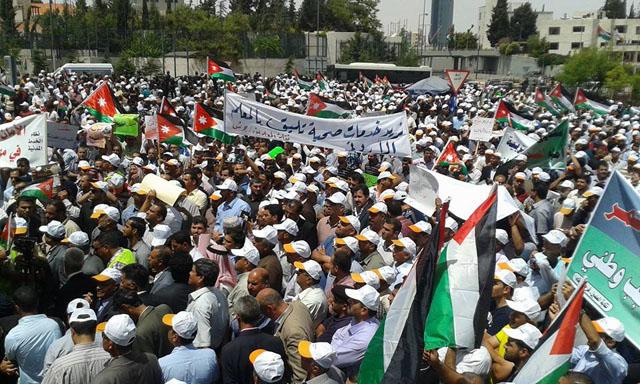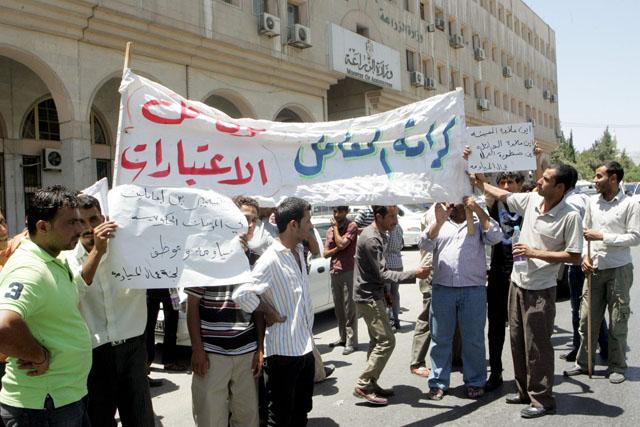You are here
‘Labour protests drop by 49% in first six months of 2014’
By Khetam Malkawi - Jul 15,2014 - Last updated at Jul 15,2014

AMMAN — The number of labour protests in the Kingdom witnessed a 49 per cent drop in the first half of this year compared to the same period last year, according to a report released this week.
A total of 302 labour protests were organised in the first six months of this year, compared with 597 protests in the first half of 2013.
The report, issued by the Phenix Centre for Economic and Informatics Studies and prepared in cooperation with the German Friedrich-Ebert Stiftung (FES), said 134 protests (44.3 per cent of the total) were organised by private sector employees, after public sector employees had dominated protests in the past three years.
Strikes comprised 61.3 per cent of the total number of labour protests; sit-ins followed with 24.5 per cent. Threats to organise protests were 11.2 per cent of the total, according to the report.
Meanwhile, self-harm, suicide and suicide threats for reasons related to work stood at 3 per cent.
Phenix Centre Director Ahmad Awad said the drop in the number of protests this year is due to many factors, including not achieving the targets and objectives of the protests organised in the previous years.
Another reason for the drop is related to “government pressure” on labour unions and leadership, he added, noting that several protests were dispersed by security forces.
Low wages topped the reasons for organising protests in the January-June period, with 116 (38 per cent) protests organised to call for higher salaries.
Protests against laws and regulations governing work-related issues came second (24.8 per cent), while (13.6 per cent) of the protests were held to demand job opportunities.
Awad said it is normal to have the majority of protests organised to demand higher salaries as low wages are among the main challenges the local labour market suffers from. He noted that salaries of approximately two-thirds of labourers in Jordan are under the poverty line.
In its recommendations, the report called for reviewing wage levels in both the private and public sectors and linking them to the inflation rate.
It also suggested revisiting the minimum wage, currently set at JD190.
The report called for amending Article 31 of the Labour Law, which allows employers to implement collective layoffs, with the labour minister’s approval, in the case of economic or technical difficulties or changes at the company.
Related Articles
AMMAN — Arab Bank Group delivered strong financial performance in the first nine months of this year, reporting net income after tax of $405
AMMAN — Labour protests increased by 22 per cent last year, a rise which reflects the gravity of Jordan's socioeconomic crisis, a new r
A total of 890 labour protests were organised last year, only 5.7 per cent of which partially or completely achieved their goals, according to a report released on Wednesday.



















